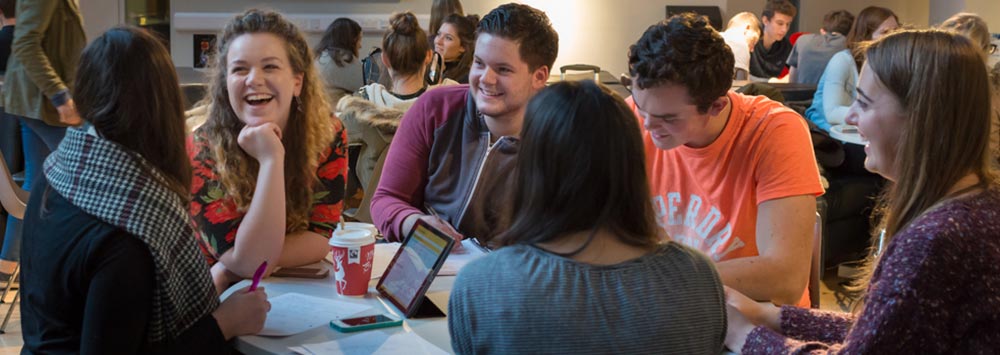Welfare support
As well as ensuring that you are supported academically, the School of Life Sciences is keen to ensure that all our students have the right welfare and personal support to help them succeed in their studies. Much of this support is offered by the University’s Student Services, who offer comprehensive support and welfare services to students. Staff in Life Sciences are trained to help you find the services that you need.
Learning & Teaching Support Officer (LTSO)
The School’s Learning & Teaching Support Officer can help if you are experiencing difficulties with any aspect of University life. The LTSO can provide advice and support with welfare and pastoral concerns, ensuring that students are guided to the most appropriate specialised support for their needs.
Senior Academic Advisors (SAAs)
The Senior Academic Advisors (SAA's) are a team of experienced academic staff, trained as Mental Health First Aiders combined with a working knowledge of the universities policies and procedures. The team offer support and guidance relating to pastoral care and the University's support services.
Disability Support
For students who need support due to a disability or specific learning difficulty, the School has several Department Disability Contacts (DDCs), with each looking after a specific year of study. The role of the DDC is to liaise with the central Disability Advice and Guidance Team to ensure that any specific requirements and recommended adjustments are implemented within the School.
Academic support
The University’s Student Success framework focuses on a team approach to supporting students and comprises four pillars: academic advisors, student experience teams, peer mentors, and students themselves.
Academic Advisors
Every student is allocated an Academic Advisor who provides academic advice and guidance to support a student’s academic progress. Students meet their academic advisor regularly throughout their course as part of the School’s tutorial programme.
Student Experience Team
The School’s Student Experience Team is the main point of contact for advice and guidance unrelated to academic progress.
Peer Mentors
Peer Mentors are existing students who have been recruited by the University and specially trained to provide a ‘near peer’ welcome to new students during the first few months at University. They help students to settle into their new surroundings while assisting in the transition to higher education. Further information on the School’s Peer Mentoring system is available below.
Students
Students are expected to engage pro-actively with their Academic Advisor, Student Experience Team/Learning & Teaching Support Officer, and Peer Mentors. Students will also take responsibility for making and implementing plans, reviewing their achievements, and reflecting on their progress in order to enhance their student experience with the University and maximise their attainments and employability.
The School of Life Sciences Peer Mentoring Programme
The School of Life Sciences Peer Mentoring Programme ensures that every first-year undergraduate student is assigned a Peer Mentor when they arrive to commence their studies. Their Peer Mentor is a second- or third-year Life Sciences student who is assigned a handful of mentees who are all on the same programme as each other. Mentors offer group or one-to-one meetings and answer any queries that their mentees might have (and can signpost them to the relevant student support services if appropriate). Mentees can contact their mentor for advice and support throughout their time at the University. As someone who has recently experienced their first year at University, the mentor is perfectly suited to help students settle into University life.
As you can see from the below comments from current and previous mentors and mentees, the Programme is beneficial for a host of reasons:
From mentees:
“I found it very helpful that there was someone we could talk to about the new experience and how they dealt with the change at the time. It was also great to be able to ask questions about ways to revise and other study techniques.”
“…it was nice to know I had someone who I could ask questions to and talk to if I needed to.”
“I really found it helpful […] to speak to another student rather than a member of staff…”
“I found it reassuring that everyone gets overwhelmed and the fact that my peer mentor was still smiling and enjoying university helped a lot to reassure I was doing the right thing.
“I liked that I could ask the silly questions to another student rather than staff…”
“I think peer mentoring is great for asking students who have a bit of experience questions lecturers and other staff members don’t really have the answer to and it was good knowing there was someone I could go to if I ever really needed.”
“Having a peer mentor helped me cope with the work load a little better, thinking that loads of students had done this before and being told that as long as you try your hardest you’ll be fine. I guess just having someone that’s not as professional or as instructive as a lecturer/teacher, but someone on your level and that you can relate to.”
From mentors:
“I have been reached out to by one of my mentees and found that I have made an impact on their studies which is so rewarding and I'm very glad that the student is feeling better about their time at the university.”
“I have enjoyed speaking with my mentees they have all been lovely, and all had the same questions and the overwhelming feeling university gives you at first.”
Back to: School of Life Sciences
